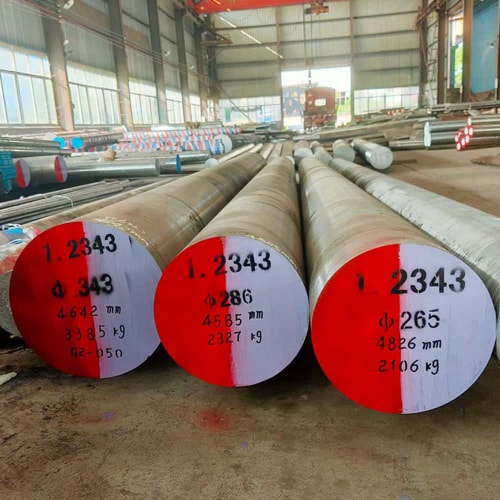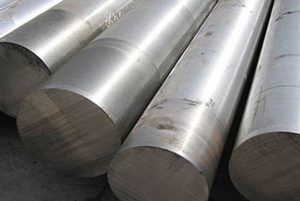Introduction

In the realm of precision machining, selecting the right material is crucial for achieving optimal performance, efficiency, and cost-effectiveness in manufacturing processes. Tool steel 1.2343, known as H11 steel, is highly esteemed for its exceptional properties that cater specifically to the demanding requirements of precision machining applications.
Properties of Tool Steel 1.2343
Tool steel 1.2343 is characterized by several key properties that make it particularly suitable for high-performance tooling:
Thermal Stability: Tool steel 1.2343 exhibits remarkable thermal stability, maintaining its hardness and strength even when subjected to high temperatures. This property is essential for tools used in processes such as die casting and extrusion, where prolonged exposure to heat is common.
Toughness: High toughness is another critical attribute of 1.2343 tool steel. This enables the tool to withstand impact and mechanical stresses during operation, thereby extending its operational lifespan and reducing the frequency of tool replacements.
Machinability: The ease with which 1.2343 tool steel can be machined is a significant advantage in manufacturing. Its good machinability allows for efficient shaping and forming of tools, reducing machining time and overall production costs.
Applications of Tool Steel 1.2343
Tool steel 1.2343 finds extensive application across various industries due to its unique combination of properties:
Die Casting: In die casting operations, where molds are exposed to rapid heating and cooling cycles, 1.2343 tool steel’s thermal fatigue resistance ensures prolonged tool life and consistent performance.
Extrusion: For extrusion dies, which operate under high temperatures and pressures, 1.2343 tool steel’s thermal stability and toughness are invaluable in maintaining die integrity and dimensional accuracy over extended production runs.
Hot Work Tools: Tool steel 1.2343 is widely used in hot work tooling such as forging dies and punches. Its ability to retain hardness at elevated temperatures ensures reliable performance and enhances productivity in hot forging and stamping applications.
Advantages of Choosing Tool Steel 1.2343
Enhanced Tool Life
The exceptional thermal stability and toughness of 1.2343 tool steel contribute to significantly extended tool life. This translates to reduced downtime for tool maintenance and replacement, thereby increasing overall operational efficiency.
Superior Heat Resistance
1.2343 tool steel’s ability to maintain hardness and strength at high temperatures ensures consistent performance in hot work applications. This capability minimizes thermal deformation of tools and maintains dimensional accuracy during prolonged use.
Reduced Machining Time
Due to its good machinability, 1.2343 tool steel allows for faster cutting speeds and higher feed rates during machining operations. This not only reduces manufacturing lead times but also enhances the precision and quality of finished components.
Case Study: Tool Steel 1.2343 in Precision Machining
Machining Process Parameters

To illustrate the practical benefits of 1.2343 tool steel in precision machining, consider the following process parameters typically used:
| Parameter | Value |
|---|---|
| Cutting Speed | 200-300 meters per minute |
| Feed Rate | 0.1-0.2 mm per tooth |
| Depth of Cut | 1-2 mm |
| Tool Life | 5000-8000 tool strokes |
These parameters demonstrate the optimized performance achievable with tool steel 1.2343, emphasizing its suitability for high-speed machining and prolonged tool durability.
Conclusion
In conclusion, tool steel 1.2343 stands out as a versatile and reliable material choice for precision machining applications. Its exceptional properties, including thermal stability, toughness, and machinability, make it indispensable in industries requiring high-performance tooling solutions. Whether used in die casting, extrusion, or hot work tools, 1.2343 tool steel continues to set the standard for durability, efficiency, and cost-effectiveness in modern manufacturing.
FAQ
Q: What are the main advantages of tool steel 1.2343 over other materials for precision machining?
A: Tool steel 1.2343 offers superior heat resistance, enhanced tool life, and excellent machinability, making it ideal for demanding machining applications.
Q: How does 1.2343 tool steel perform in high-temperature environments?
A: 1.2343 tool steel maintains its hardness and strength at elevated temperatures, ensuring reliable performance in hot work applications.
Q: What industries commonly use tool steel 1.2343?
A: Tool steel 1.2343 is widely used in industries such as die casting, extrusion, and hot work tooling, where thermal stability and toughness are critical.

